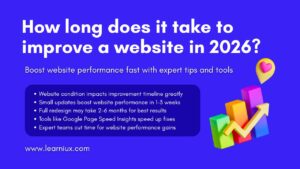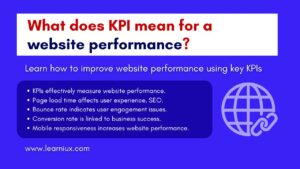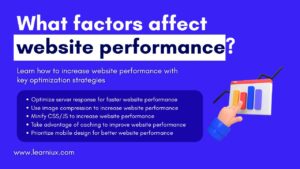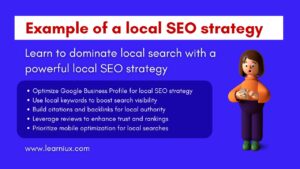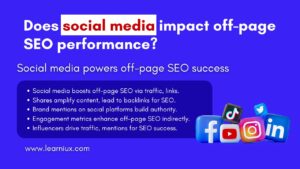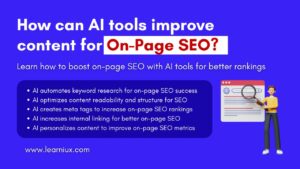In today’s digital age, businesses strive to get noticed wherever they can thrive online. The integration of social media and search engine optimization (SEO) has become a cornerstone of effective marketing strategies. From Twitter to Instagram, social media platforms are not just places for casual interactions but also powerful tools that enhance a brand’s online presence. Meanwhile, SEO is the backbone for ensuring a website ranks high on search engines like Google. Together, they create a symbiotic relationship that drives visibility, engagement, and conversions. Imagine a scenario where a single viral post on social media drives thousands of users to a website, increasing its traffic and demonstrating its relevance to search engines. This is the potential of integrating social media into SEO marketing services. With over 4.8 billion social media users globally, the impact of these platforms on search rankings and brand authority cannot be ignored. This article explores how social media shapes SEO, providing practical insights and strategies for businesses to leverage this synergy to dominate the digital landscape.
To understand the role of social media in SEO, it is important to understand the basics of both. Social media includes platforms where users share content, interact with communities, and engage with brands. This includes giants like Facebook, Instagram, LinkedIn, and newer players like TikTok. SEO, on the other hand, is the process of optimizing a website to rank higher on search engine results pages (SERPs) through techniques like keyword research, on-page optimization, and link building. Marketing services tie all of these together, providing professional expertise to align strategies with business goals. While social media was once viewed as a separate entity focused on engagement, its overlap with SEO has undeniably increased. Search engines now consider a variety of signals, including signals indirectly influenced by social media activity, to determine a website’s relevance and authority. This interconnectedness makes social media a key component of modern SEO strategies.
The most important way in which social media impacts SEO is through its direct and indirect impact on search engine rankings. Google has said that social signals like likes, shares, and comments are not direct ranking factors, but their impact is undeniable. A post that is widely shared on social media can drive a lot of traffic to a website. This increase in visitors signals to search engines that the content is valuable, which is likely to improve its ranking. For example, a blog post that gets thousands of clicks on Twitter can increase the time users spend on the page, which is an important metric for SEO. Beyond traffic, social media increases brand visibility. When users frequently see a brand on platforms like Instagram, they are more likely to search for it on Google, which increases branded search volume. This increased interest strengthens the authority of a website, as search engines prefer brands with a strong online presence. In addition, social media profiles themselves often rank in search results. A well-optimized LinkedIn page or Twitter profile can appear on the first page of Google, further increasing a brand’s digital footprint.
Backlinks remain a pillar of SEO, and social media plays a key role in generating them. When content is shared on platforms like Facebook or Pinterest, it reaches a larger audience, increasing the likelihood that other websites will link to it. For example, an attractive infographic posted on Instagram can catch the attention of a blogger who then links to it in their article. These backlinks, especially from authoritative sites, signal to search engines that the content is trustworthy, which improves its ranking. Social media also helps to collaborate with influencers or industry leaders who can share the content with their followers, further increasing its reach and link-building potential. To maximize this, businesses should create shareable content like guides, videos, or interactive posts, and actively engage with communities on platforms like Reddit or LinkedIn Groups. By fostering relationships and encouraging shares, social media becomes a powerful tool for acquiring high-quality backlinks.
Content distribution is another area where social media shines in supporting SEO. The internet is flooded with content, making it challenging for businesses to stand out. Social media platforms act as amplifiers, helping content reach the right audience. A well-crafted blog post optimized with keywords can garner attention when shared on Twitter with relevant hashtags or posted in targeted Facebook groups. This not only generates immediate traffic, but also increases the likelihood that the content will be indexed faster by search engines. To optimize content for both social media and SEO, businesses should focus on creating engaging, value-driven posts. For example, a short video summarizing a blog post can perform well on TikTok when linked to the full article on a website. Including keywords in the caption and utilizing platform-specific features like Instagram Stories or Twitter threads can further increase visibility. Aligning social media content with SEO goals, ensuring that each post serves the dual purpose of engagement and search optimization.
The rise of search features on social media platforms has given rise to a new concept called social search optimization. Platforms like Instagram and TikTok now have robust search functionality, allowing users to find content by keywords and hashtags. This mirrors traditional SEO but works within the social media ecosystem. For example, a business selling eco-friendly products could optimize its Instagram profile with keywords like “sustainable living” or “eco-friendly gifts” in the bio and posts. Hashtags like #EcoFriendly or #Sustainable act as social keywords, allowing users searching for those terms to find the content. This not only increases engagement on the platform but also drives traffic to the linked website, which indirectly boosts SEO. Businesses should research trending hashtags and keywords related to their niche, incorporating them into captions, comments, and profiles. Consistency in branding across platforms also helps, as it reinforces recognition when users encounter the brand in social and search engine results.
The convergence of artificial intelligence (AI) and automation has changed how businesses approach social media for SEO. AI tools can analyze large amounts of data to identify trending topics, optimal posting times, and audience preferences. For example, tools like Hootsuite or Sprout Social use AI to suggest content strategies that align with SEO goals. Automation streamlines repetitive tasks like scheduling posts or responding to comments, allowing marketers to focus on creating high-quality content. AI-powered analytics also provide insights into which social media activities drive the most traffic to a website, enabling data-driven decisions. For example, if a LinkedIn post consistently clicks on a blog, marketers can replicate its appearance on other platforms. By combining AI with human creativity, businesses can maintain a consistent social media presence that supports long-term SEO goals. However, it’s important to balance automation with authenticity, as too much robotic interaction can alienate audiences.
A clear understanding of key performance indicators (KPIs) is essential to measuring the success of social media’s role in SEO. Metrics like referral traffic, engagement rate, and branded search volume on social platforms provide insight into how social media contributes to SEO. Tools like Google Analytics can track the number of visitors coming from social media and their behavior on a website, such as bounce rate and time on page. Social media analytics dashboards like those provided by Meta or Twitter provide data on impressions, clicks, and shares. By combining these insights, businesses can assess which platforms and content types are delivering the best SEO results. For example, if Instagram Stories get more website clicks than static posts, marketers may prioritize short-form video content. Regularly monitoring these metrics allows businesses to refine their strategies, ensuring that social media efforts are aligned with SEO goals. It’s also important to set realistic goals, as social media’s impact on SEO is often gradual but cumulative.
Despite its benefits, there are challenges in integrating social media with SEO. Algorithm changes on platforms like Instagram or Google can disrupt strategies overnight. For example, changes to Facebook’s algorithm can reduce the visibility of organic posts, which can impact website traffic. To combat this, businesses should diversify their presence across multiple platforms, reducing their reliance on any single channel. Content saturation is another obstacle, as users are bombarded with posts every day. To stand out, you need to create unique, high-value content that your target audience will love. Engaging visuals, storytelling, and interactive elements like polls or quizzes can help capture attention. Additionally, maintaining consistency across platforms while adhering to SEO best practices can be resource-intensive. Small businesses in particular may face limited budgets or expertise. Partnering with professional marketing services or using affordable tools can help bridge the gap, ensuring a consistent strategy.
Real-world examples demonstrate the power of combining social media and SEO. A small e-commerce brand that sells handmade jewelry uses Instagram to share behind-the-scenes videos of their crafting process. By optimizing posts with hashtags like #HandmadeJewelry and linking to their website, they saw a 30% increase in organic traffic in three months. The increased engagement also led to backlinks from lifestyle blogs, further boosting their Google rankings. Similarly, a B2B software company used LinkedIn to share in-depth articles on industry trends. By targeting specific keywords and engaging with comments, they not only grew their LinkedIn following but also saw a 20% increase in branded searches on Google. These cases highlight the importance of aligning content with audience interests and SEO goals. Lessons learned include the value of consistency, the need for platform-specific strategies, and the impact of authentic engagement in building trust.
The role of social media in SEO marketing services is multifaceted and evolving. It increases traffic, increases brand authority, and increases content reach, all of which contribute to better search engine rankings. By using social platforms for backlink building, content distribution, and social search optimization, businesses can build a strong online presence. AI and automation streamline these efforts, while analytics provide the data needed to refine strategies. Despite challenges like algorithm changes or content saturation, the benefits of integration far outweigh the obstacles. Businesses that invest in a combined social media and SEO strategy position themselves to thrive in a competitive digital landscape. To get started, consider auditing your current social media presence, identifying SEO opportunities, and experimenting with content formats that your audience will love. Whether you’re a small business or a global brand, the synergy of social media and SEO is a game-changer. Explore this dynamic approach and watch your online visibility soar.






















